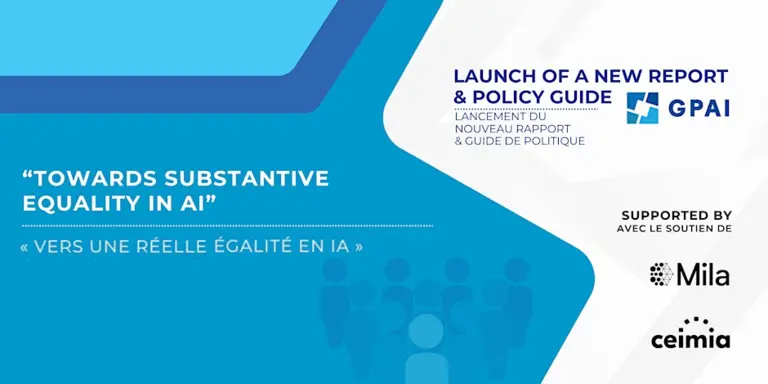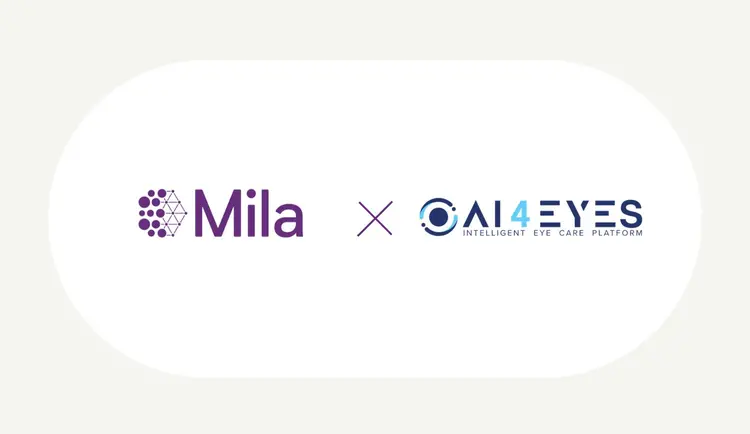
As artificial intelligence (AI) becomes adopted across the world, its benefits and risks for inclusion and diversity are becoming increasingly clear: AI has the possibility to bridge global divides, but also to deepen them. Biases in AI systems can perpetuate discrimination and inequality, especially for women and marginalized groups. It is crucial to establish frameworks to ensure that AI systems are developed and used in a way that promotes equity, diversity, inclusion, and justice for all.
On November 26, 2024, Mila and CEIMIA released the most comprehensive policy report to date on gender equality and diversity in AI. An initiative of the Global Partnership on AI (GPAI) working group on Responsible AI, the report and policy guide were launched in an event hosted at Mila, bringing together global leaders, policymakers, and AI community representatives.
The report, entitled “Towards Substantive Equality in AI: Transformative AI Policy for Gender Equality and Diversity” explores effective practices, offers policy insights, and provides actionable recommendations to improve gender equality and diversity in AI and related policymaking. Informed by extensive consultations with over 200 participants, representing over 50 countries and diverse perspectives, this report and its policy guide companion offer policy-makers clear recommendations to foster greater inclusivity in technology development.
To complement the report, Mila and CEIMIA have also published a policy guide which offers a step-by-step roadmap for implementing the recommendations and facilitating this pivotal transition towards more inclusive AI ecosystems.
“Robust regulatory frameworks are urgently needed to prevent harm and work towards true equality and diversity in AI ecosystems which ultimately, affect human life,” said Benjamin Prud’homme, Vice-president, Policy, Safety and Global Affairs at Mila and co-lead of the report. “Through inclusive AI policies, we can enhance the quality, usability and effectiveness of AI systems, contributing to a more equitable, sustainable and prosperous future for all.”
The report’s key recommendations notably include:
- Incentivizing Inclusive Design and Democratic Innovation: Integrating affirmative action and measures for institutional inclusion, and supporting inclusive technology design.
- Enhancing Meaningful Participation in AI Governance: Fostering and ensuring the active involvement of marginalized groups in AI governance to ensure better AI policy for all.
- Ensuring Transparency and Accountability for Harm Prevention: Establishing safeguards and mechanisms for accountability among all AI actors to prevent harm and ensure fairness.
- Guaranteeing Effective Access to Justice: Implementing measures to ensure that marginalized groups have access to legal recourse against AI-driven discrimination and bias.
To learn more about this initiative, you can access the full report and policy guide here.





